13+ Sample Scientific Research Report
-
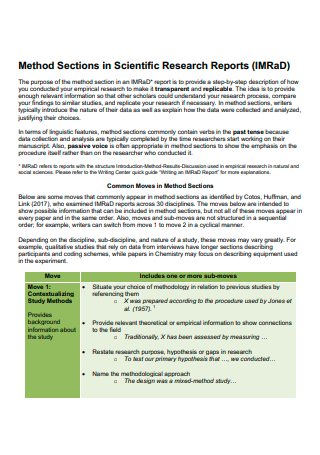
Sections in Scientific Research Report
download now -
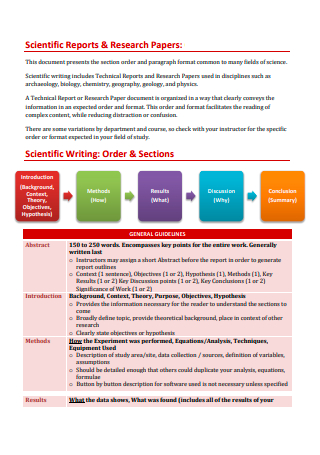
Scientific Research Papers Report
download now -
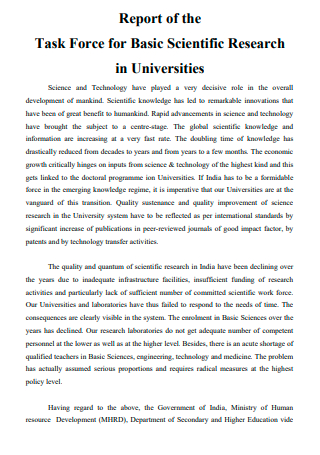
Basic Scientific Research Report
download now -
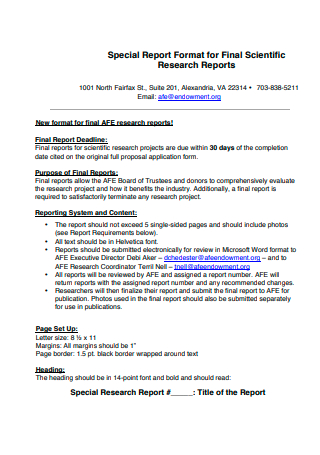
Final Scientific Research Report
download now -
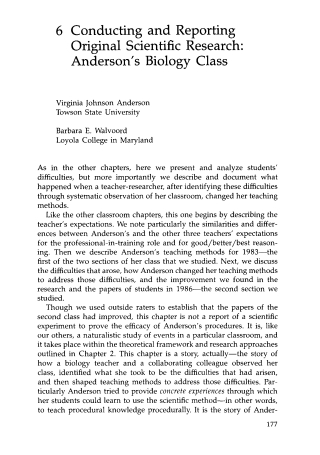
Scientific Research Reporting in PDF
download now -
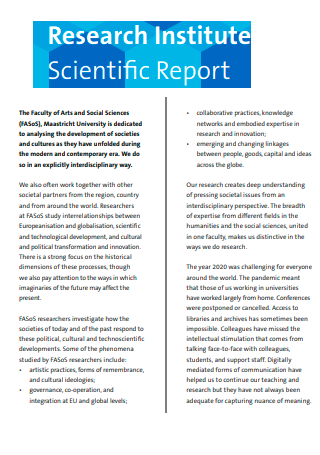
Scientific Research Institute Report
download now -
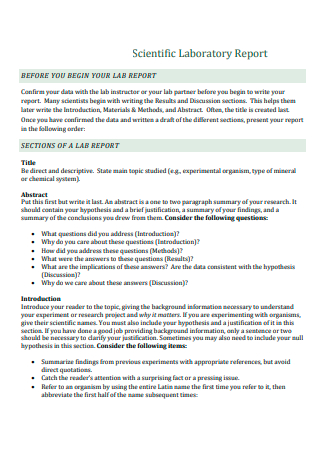
Scientific Laboratory Research Report
download now -
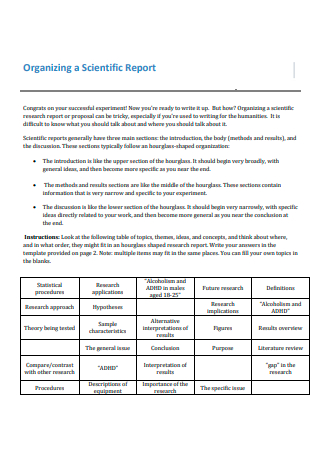
Organizing a Scientific Research Report
download now -
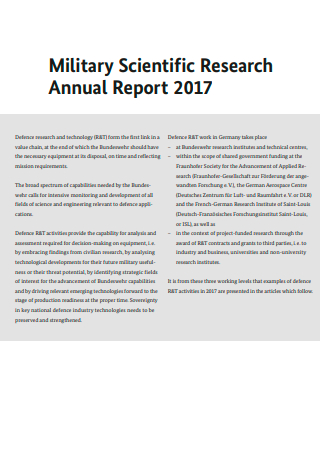
Military Scientific Research Annual Report
download now -
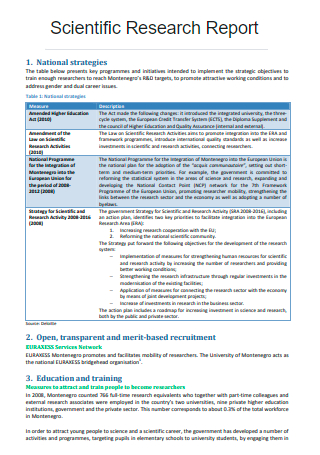
Scientific Research Report Example
download now -
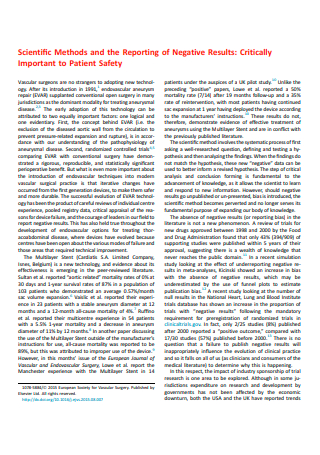
Simple Scientific Research Report
download now -
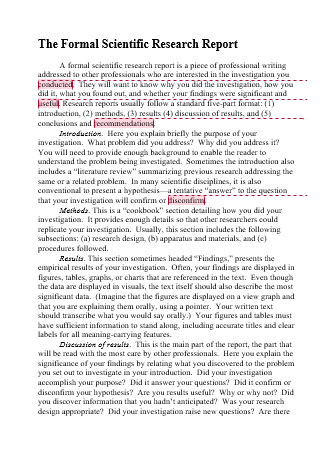
Formal Scientific Research Report
download now -
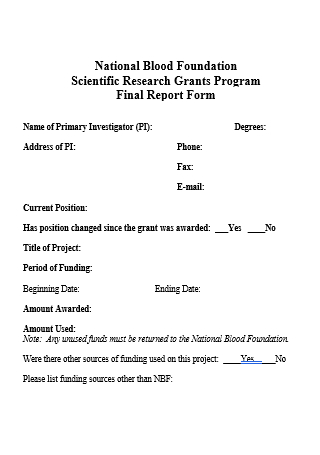
Scientific Research Grant Program Final Report Form
download now -
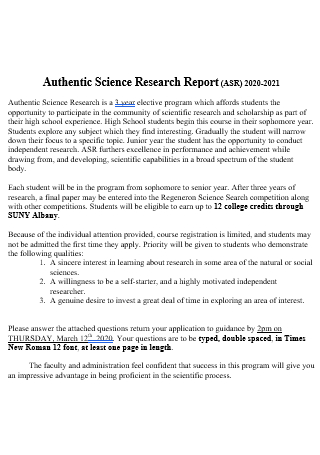
Authentic Science Research Report
download now
FREE Scientific Research Report s to Download
13+ Sample Scientific Research Report
What Is a Scientific Research Report?
The Elements of a Scientific Research Report
How To Write a Scientific Research Report
FAQs
What are the types of scientific reports?
What is a scientific research paper called?
Why is there a need to write scientific reports?
What Is a Scientific Research Report?
A scientific research report is a document that contains all the information about experimental investigations. It describes the processes and progress of scientific research, including its results and the state of the research problem. Scientific research reports allow the readers to understand the experiment without implementing and applying it themselves. Additionally, scientific reports enable different groups and individuals the chance to verify the methodology and procedures of experiments to test the validity of results. The scientific research report is also in a formal structure, containing approximately 2500 to 3000 words. Regardless of the subject matter or discipline of the scientific research report, the preparation of the document must represent clear information for scientists and academes to interpret its content. People that read the report have two essential goals. One, they want to gather more information about the topic, and two, they want to know if the findings are legitimate.
According to a study entitled Meta-Research: Why we need to report more than ‘Data were analyzed by t-tests or ANOVA’ published in December 2018, out of the 328 research articles that went through analysis, 277 of them or roughly 84.5 percent uses the t-test, ANOVA, or both. Despite this, 213 papers or 95 percent of studies using ANOVA do not contain any essential information to determine the involved test, while 26.7 percent have no specifications of posthoc tests.
The Elements of a Scientific Research Report
Over the years, scientists and researchers have been using scientific research papers as a formal method of communication, using certain styles, formats, and conventions. It means that valuable information is present in a standardized way that the readers can extract bits of information in the most convenient method. Scientific research reports follow various institutional requirements, and there is no standard on the components that must be available on the scientific report. However, the main goal of the document is to present information as precisely, accurately, and concisely as possible. Below are the most common elements that a reader finds in a scientific research report.
How To Write a Scientific Research Report
There are several steps to take to ensure that you produce high-quality and well-written scientific research reports. When writing the scientific report, it must explain essential procedures, raise significant considerations, offer relevant solutions for further scientific research and writing practices. Remember that the scientific report serves as a roadmap for readers about the planning and implementation of the scientific process. Below are the steps to take when writing a scientific research report.
-
1. Consult with Supervisors Regarding Instructions and Guidelines
You must be aware of the standard procedures of writing the scientific research report, whether it comes from published guidelines, professor instructions, or funding agency requirements. Start the writing process by researching the expectations of the report you need to write. Most peer-reviewed journals and other publications often have guidelines for authors outlining the content, format, style, and preferences for paper publishing. Funding agencies also provide detailed instructions for their scientific reports, while education institutions hand out assignment templates and course syllabus that details specifics. Whenever there are questions about policy and procedures, the best advice is to ask for directions from concerned entities.
-
2. Anticipate the Audience of the Report
Thinking about the possible readers of the report helps you plan on constructing the research according to what they need and anticipate to acquire from the study. A general audience of the report may need particular definitions and explanations of terminologies and theories in comparison to experts. As such, writing descriptions for specific terms help different readers to grasp the study. Since researchers, scientists, practitioners, and other people use the research for material and references after publication, prepare the report to accommodate a wider range of readers.
-
3. Outline the Content and Structure of the Report
The research process and the results must be the highlight of the research report. Meaning the content and structure must focus on them. Remember to uphold the standardized policy and procedures when writing the document to report the findings and detail the procedures. The guidelines, instructions, and requirements you follow help you structure the report. Make sure that all the essential components of a scientific report are present in the document, including the introduction, method, results, and discussion. Whatever the required structure is, the outline that you have helps when you start to draft the report, especially if you note the ideal length of each section of the report.
-
4. Draft the Scientific Report
Drafting and writing the scientific research report becomes interesting and enjoyable if the researcher prepares a detailed outline. Since it serves as a template for the report, it guarantees that there is an organized structure that demonstrates a logical progression that explains the relevance of the study, including the utilized methods and final results. When writing the entirety of the scientific report, utilize common language and avoid highfalutin words. Be straightforward and work on a clear and concise style in writing with complete sentences.
-
5. Indicate the References and Citations
References are an integral part of any scientific research paper, and in-text citations are highly encouraged in the report as you start to draft. If you are uncomfortable about indicating reference notes as you go through the writing process, it is best to immediately write all literature citations in the reference list as soon as you conclude the report. However, you must note all the sources that you include in different sections of the document and incorporate the citations according to the standardized format. Publisher guidelines have specific guidelines in writing the format of the reference. Check the details carefully and thoroughly and finalize your list.
-
6. Revise, Edit, and Correct as Necessary
As you complete the document, set the work aside and get back to it at a later time to check for grammatical and spelling errors. Afterward, read the report slowly and carefully, repeating the process several times. Take note of all kinds of mistakes and sections that you can improve. You can also refine the final document by reading the content out loud or seeking the help of colleagues and asking for feedback on the report. Revising, editing, and correcting the content of the scientific research paper may feel time-consuming, but it also helps make the document be in pristine condition.
FAQs
What are the types of scientific reports?
Scientific reports are prevalent in different industries and sectors. Scientific reports include various publications like original articles, case studies, case reports, scientific commentaries, pictorial essays, editorials, among others.
What is a scientific research paper called?
Another term for a scientific research paper is a journal article.
Why is there a need to write scientific reports?
The principal purpose of writing scientific reports is to communicate the key findings of the research and the reason for their relevance to different fields of study.
Constructing a scientific research report feels like a daunting task. A researcher must equip themselves with the right mindset to begin drafting the document. For starters, knowing about the essential components of the report helps an individual construct each section to contain all the necessary information while keeping in mind to keep the content straightforward and easy to understand. Whenever there are uncertainties in constructing the report, remember to ask for help and advice from respective entities. It is better to be sure rather than go through the entire report with repercussions. Write out a clear and concise report for your scientific research by downloading 13+ SAMPLE Scientific Research Report in PDF | MS Word samples from Sample.net.
